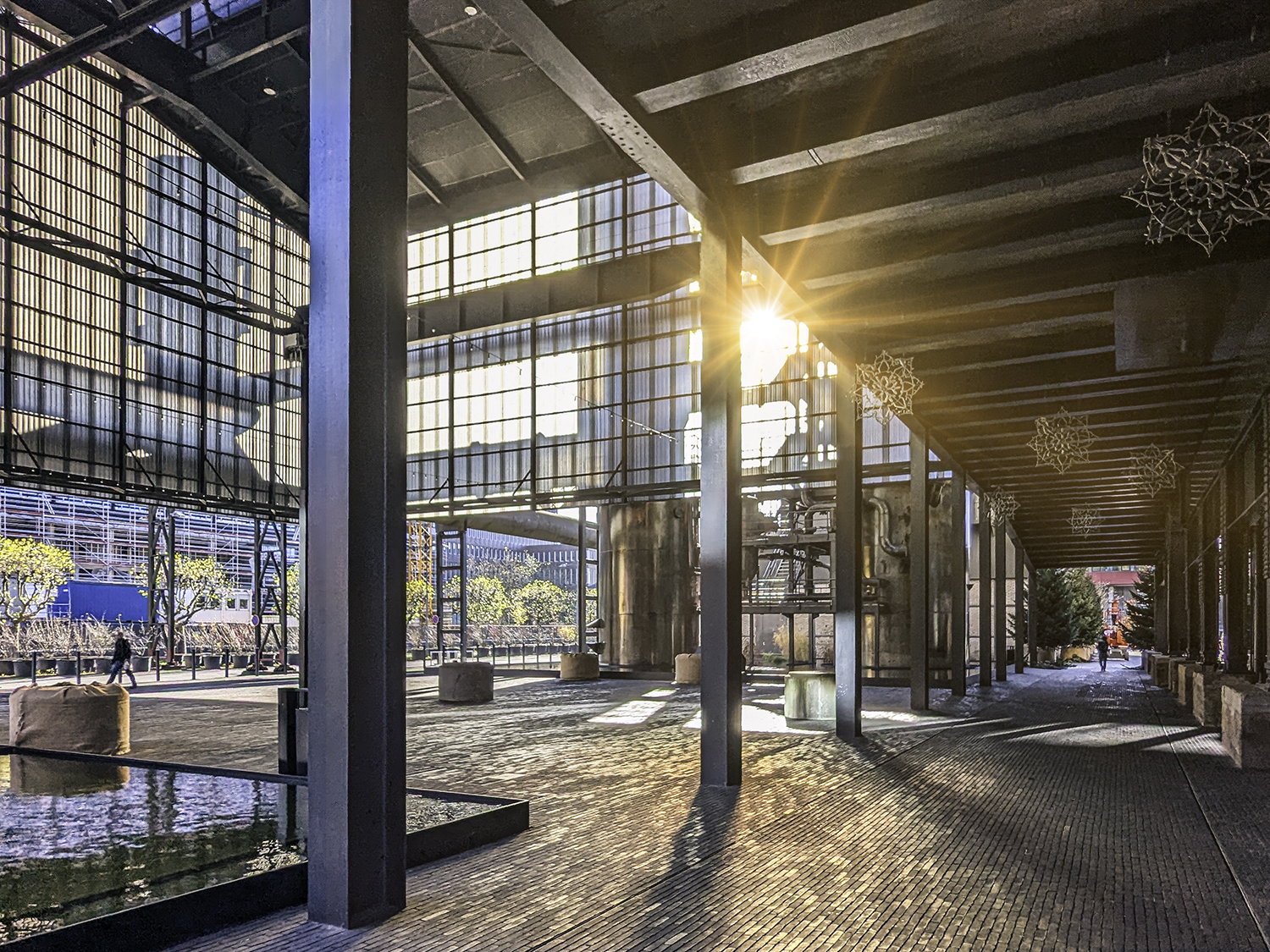Closing conference of the CONDE research project, organised by the C²DH / University of Luxembourg and the Leibniz Institute for Contemporary History, Munich.
Since the 1970s, deindustrialization has fundamentally changed Western industrial societies. In North America and Europe, thousands of jobs have been lost in traditional industrial regions, in particular in the textile industry, coal mining, the iron and steel industry and shipbuilding. Even in the electronic consumer goods sector and the watch and photography industries, many millions of jobs have been eliminated or relocated to other regions of the world. There is no question that deindustrialization is one of the most far-reaching transformation processes in contemporary history, fundamentally changing landscapes, economic structures and socio-cultural environments.
Starting from this observation, the conference, organized by the CONDE research group, will reflect on the impact and wider historical reverberations of deindustrialization in Europe from the 1970s onwards. While deindustrialization was initially addressed mainly by the social sciences, in recent years historians have increasingly turned their attention to the subject, pointing to the complexity of the historical phenomenon. In contrast to economic concepts such as “restructuring” or “downsizing”, which do not adequately capture societal and social change, a historical approach to deindustrialization can offer a broader view, encompassing multiple dimensions: first, the economic development of production, turnover and sales; second, the political shaping of the policy field; third, the cultural ramifications; and fourth, a perspective from below, which takes into account personal memories of workers, the dissolution of traditional social and cultural communities and changes in social spaces.
The conference will focus on the European particularities of deindustrialization since the 1970s – in Western and Eastern Europe, with an East-West comparison over the epochal years 1989/90, and in terms of entanglements among European states and beyond. What distinguished Europe from the US and Canada, from the North American experience of deindustrialization? To what extent did European reactions to deindustrialization differ from one country to the next? Did the Cold War resonate in deindustrialization policies, in the ensuing political mobilization or in personal experiences? In what ways did deindustrialization leave its mark on the co-transformation process after 1989/90, both in the East and in the West? Last but not least: is it possible to conceive of a specifically ‘European’ deindustrialization?
Programme
-
13.30
Arrival of participants (coffee and tea)
-
14.00
Welcome
Andreas Fickers (Luxembourg)
Andreas Wirsching (Munich) -
14.10
Introduction
Stefan Krebs (Luxembourg), Christian Marx (Munich) and Martina Steber (Munich) -
14.30
Panel 1: Industrial Production in Deindustrializing Economies
Chair: Christian Kleinschmidt (Marburg)
Diverging Paths after the Boom: Deindustrialization in the German Household Appliance Industry (1960–2000s)
Christian Marx (Munich):The Steady Stream? De-industrialization and Re-industrialization in the Petro-Chemical Industry in Yugoslavia and Italy
Anna Calori (Glasgow)ARBED’s Takeover of the former VEB Maxhütte Unterwellenborn 1992-2001: The “last remaining island of socialism”?
Nicolas Arendt (Luxembourg) -
16.00
Tea/coffe break
-
16.30
Panel 2: Deindustrialization and the Environment
Chair: Sabine Pitteloud (Brig)
Nuclear Deindustrialization? Italy’s Experience in the Long Decommissioning (1970s–1990s)
Mauro Elli (Milan)Deindustrialization of the Scottish Petrochemical Industry and the Experience of Noxiousness: BP Chemicals in Grangemouth from 1970 to 2000
Riyoko Shibe (Glasgow)From Fordist to Post-Fordist Nature? Landscape Planning and the Management of Urban Nature in Hamburg, 1960s–1980s
Philipp Kröger (Siegen) -
18.00
Keynote Lecture
Chair: Martina Steber (Munich)
„Barbarisation of Social Conflict“? Work, Recognition, and Vulnerability in the History of Deindustrialization
Dietmar Süß (Augsburg) -
19.30
Conference dinner
-
09.00
Keynote Lecture 2
Deindustrialization in a Global Perspective
Stefan Berger (Bochum) -
10.00
Panel 3: The International Politics
Chair: Benoît Majerus (Luxembourg)
European Trade Act or open Single Market? Devising a European Response to Deindustrialization in the early 1980s
Mathieu Dubois (Rennes) -
10.30
Tea/coffee break
-
11.00
Panel 4: Spaces of Deindustrialization
Chair: Emmanuel Droit (Strasbourg)
‘The Deindustrialization of the Lorraine du fer and Luxembourg from a Comparative Perspective
Pascal Raggi (Nancy)Contested Spaces of Decline: Deindustrialization in the Ruhr and in the Central German Industrial Region
Jan Kellershohn (Halle)) -
12.00
Lunch
-
13.30
Visit of the blast furnace on the campus of the University of Luxembourg
-
15.00
Panel 5: Deindustrialization and Gender Orders
Chair: Jackie Clarke (Glasgow)
A Silent Farewell: The Deindustrialization of a German Textile Region (1970-2008)
Helena Schwinghammer (Munich)The Intertwined History of Male Unemployment and Women’s Initiatives: Scenarios of Decline and Socio-Economic Consequences in the Steel Industry since the 1980s
Stefan Hördler (Göttingen)Shifting Tides: Gendered Impacts of Deindustrialization of East German Shipbuilding
Nora Küttel (Halle) -
16.30
Tea/coffee break
-
17.00
Memories of Deindustrialization: Film Screening and Round Table Discussion
Chair: Stefan Krebs (Luxembourg)
Film Screening: “Identity Disputes. The Image of Life in the Minett”, Boretska/Schönfelder 2022
Round Table Discussion with Jacques Maas (Luxembourg), Jörg Arnold (Munich) and Joanna Wawrzyniak (Warsaw)
-
19.00
Reception (food and drinks)
-
8.30
Panel 6: Deindustrialization and the European Welfare State
Chair: Christoph Brüll (Luxembourg)
Deindustrialization and Adult Education in Germany since the 1970s: Politics, Participation and Effects
Jonas Fey (Bonn)Steel Towns and Crisis Management: The Dynamics between Industrial Towns and the ‘Luxembourg Model’ during the 1975-1985 Steel Crisis
Zoé Konsbruck (Luxembourg) -
9.30
Tea/coffee break
-
10.00
Panel 7: Migration and Race in Deindustrializing Societies
Chair: Machteld Venken (Luxembourg)
No Going Back: Deindustrialization, Decolonisation, and the Remaking of Urban Communities in Western Europe
Christopher Lawson (Berkeley)“Quand la justice slalome”: Sounding Deindustrialization through French Rap Narratives (1981-Present)
Paroma Ghose (Munich)Surviving Deindustrialization as Ethnic and Racial Minorities
Herrick Chapman (New York) & Lizabeth Cohen (Cambridge/MA) -
11.30
Concluding Remarks
Chair: Stefan Krebs (Luxembourg), Christian Marx (Munich) and Martina Steber (Munich)
-
12.00
End of the conference
Organisation
- Stefan Krebs, C²DH / University of Luxembourg
- Christian Marx and Martina Steber, Leibniz Institute for Contemporary History, Munich
Attendance
Guests are invited to attend the conference at their own expense; they should register in advance with Tessy Delledera (tessy.delledera@uni.lu).
